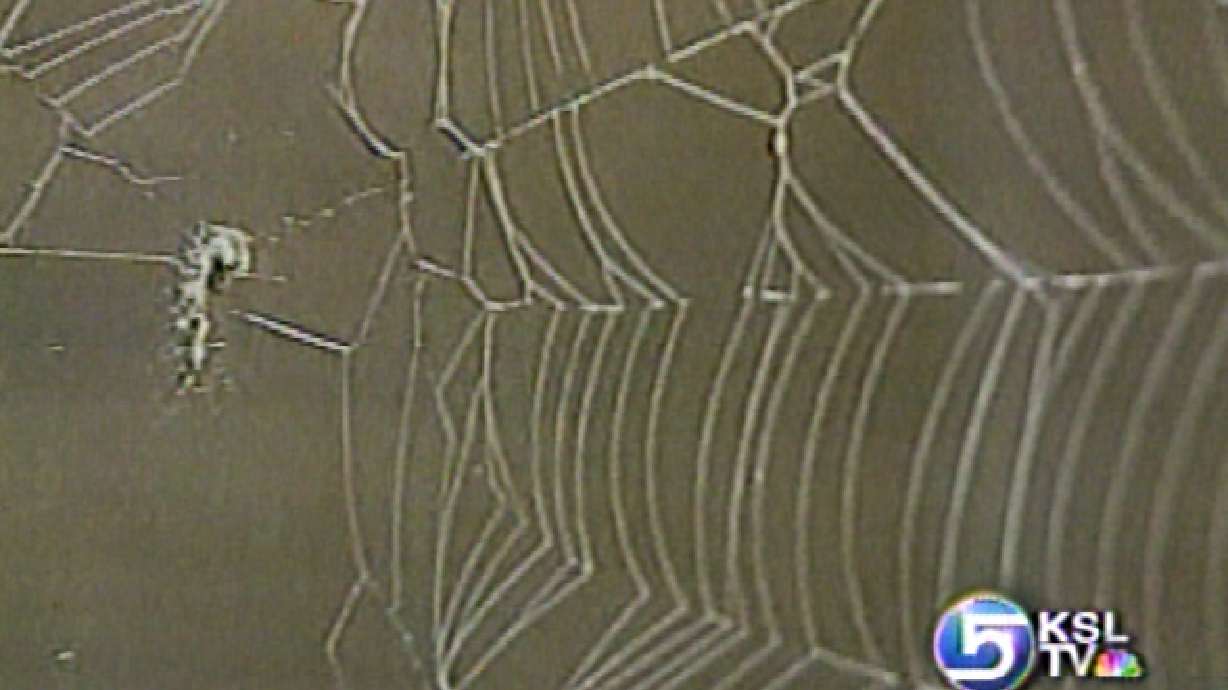Estimated read time: 1-2 minutes
This archived news story is available only for your personal, non-commercial use. Information in the story may be outdated or superseded by additional information. Reading or replaying the story in its archived form does not constitute a republication of the story.
(NBC News) -- Spider webs might look fragile, but individual threads are really quite strong. So scientists are working hard to recreate properties in spider silk.
Jessica Garb, University of California at Riverside: "In terms of its ability to absorb energy it rivals pretty much all biological materials and also engineering materials such as steel and Kevlar and things like that."
In fact, pound-for-pound some spider silks are stronger than steel. Now evolutionary biologists Jessica Garb and Cheryl Hayashi (hye-ah-shee) have unraveled the genetic code of a special silk spiders use to cover their eggs.
Jessica Garb, University of California at Riverside: "So, for example, the cocoon itself, it has to form this sort of semi impermeable barrier to all sorts of environmental factors."
Writing in the journal "Proceedings of the National Academy of Sciences," Garb and Hayashi reported finding in four species of spiders a certain gene in their abdominal glands where spiders produce silk for egg sacs. Hayashi says the findings could result in synthetic protein versions that can be used to make things like high performance ropes and super-strong body armor.
Cheryl Hayashi, University of California at Riverside: "Where spiders are picking and choosing to use a particular fiber type for a particular application now material scientists, they could be able to use, to, to match a silk for an application."
But first Garb says researchers need to figure out how to harvest huge amounts of spider silk protein. So until then, spider silk will remain a web of intrigue.
Researchers have already experimented with mass-producing spider silk by putting other spider genes into goats. The protein is then harvested from goat milk.








